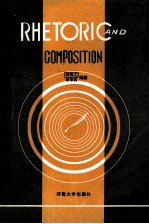图书介绍
修辞与作文PDF|Epub|txt|kindle电子书版本下载

- 刘养之,李泽民编著 著
- 出版社: 开封:河南大学出版社
- ISBN:7810185527
- 出版时间:1990
- 标注页数:200页
- 文件大小:35MB
- 文件页数:209页
- 主题词:
PDF下载
下载说明
修辞与作文PDF格式电子书版下载
下载的文件为RAR压缩包。需要使用解压软件进行解压得到PDF格式图书。建议使用BT下载工具Free Download Manager进行下载,简称FDM(免费,没有广告,支持多平台)。本站资源全部打包为BT种子。所以需要使用专业的BT下载软件进行下载。如BitComet qBittorrent uTorrent等BT下载工具。迅雷目前由于本站不是热门资源。不推荐使用!后期资源热门了。安装了迅雷也可以迅雷进行下载!
(文件页数 要大于 标注页数,上中下等多册电子书除外)
注意:本站所有压缩包均有解压码: 点击下载压缩包解压工具
图书目录
Introduction1
Chapter One Figures of Speech3
Ⅰ.Figures of Likeness4
1.Simile4
2.Metaphor6
3.Personification8
4.Allegory10
5.Fable13
6.Parable17
Ⅱ.Figures of Association20
1.Metonymy20
2.Synecdoche21
3.Hyperbole22
4.Apostrophe24
5.Vision24
6.Transferred Epithet25
Ⅲ.Figures of Contrast26
1.Antithesis26
2.Epigram27
3.Climax27
4.Interrogation28
5.Irony29
Ⅳ.Minor Figures31
1.Exclamation31
2.Euphemism31
3.Onomatopoeia32
4.Alliteration32
5.Litotes33
6.Pun33
7.Parallelism33
8.Tautology35
9.Oxymoron35
10.Paradox36
11.Zeugma38
12.Allusion39
Chapter Two Diction43
Ⅰ.Correctness43
1.Words Having the Same Sound but Differing from Each Other in Meaning44
2.Words Partially Similar in Sound45
3.Words with the Same Ending48
Ⅱ.Accuracy50
1.English Synonyms50
2.General and Specific Words58
Chapter Three Rhetorical SentencesⅠ.Kinds of Sentences61
1.Advantages of Periodic Sentences62
2.Advantages of Loose Sentences64
3.Advantages of Balanced Sentences66
Ⅱ.Length of Sentences67
1.Advantages of Short Sentences67
2.Advantages of Long Sentences69
3.Principle of Variety71
Chapter Four The Qualities of Good SentencesⅠ.Unity73
1.Too Much in a Sentence74
2.Too Little in a Sentence74
3.Careless Choice of Connectives75
4.Change in Point of View77
Ⅱ.Coherence78
1.Position of Modifiers78
2.Squinting Construction80
3.Obscure Pronouns80
4.Dangling Expression81
5.Improper Omission of Words82
6.Parallelism in Construction and Phrasing84
7.Run-together Sentences85
Ⅲ.Emphasis88
1.Inversion88
2.Exclamation89
3.Rhetorical Questions89
4.Repetition90
5.Antithesis90
6.Ellipsis90
7.Intensive Expressions91
8.Climax91
9.Periodic Sentences91
10.The"It is...that"Construction91
11.Emphatic Pronoun92
12.Emphatic"do"92
13.Italics92
14.Economy of Words93
Ⅳ.Euphony93
1.Repetition of Words94
2.Repetition of Sounds94
3.Rhyme95
4.Adaptation of the Sound to the Sense95
5.Interrogative Tone95
Chapter Five Paragraphs97
Ⅰ.The Paragraph97
1.What a Paragraph Is97
2.Length of the Paragraph101
3.Paragraphing of Dialogue102
4.Kinds of Paragraphs103
Ⅱ.Requirements of the Paragraph108
1.Unity in the Paragraph108
2.Coherence in the Paragraph114
3.Emphasis in the Paragraph119
Ⅲ.Methods of Paragraph Development121
1.Examples and Illustration122
2.Particulars and Details124
3.Comparison and Contrast124
4.Definition126
5.Repetition127
6.Cause and Effect128
7.Reasons128
8.Question and Answer129
Chapter Six Learning CompositionⅠ.Expressing Another Person's Thoughts132
1.Paraphrasing133
2.Condensing138
Ⅱ.Expressing Your Own Thoughts145
1.Choosing a Subject145
2.Choosing a Title146
3.Making Notes146
4.Making an Outline147
5.Expanding an Outline148
Chapter Seven Literary CompositionⅠ.Narration152
1.Narration of Facts154
A.Anecdote154
B.Biography and Autobiography156
C.Personal Reminiscence161
D.Incident of Personal Experience163
E.Accounts of Travel164
F.Accounts of Adventure165
G.News Stories167
H.Diaries168
2.Fiction169
A.Plot or Action169
B.Characters170
C.Setting or Background170
Ⅱ.Description174
1.Description of Object177
2.Description of Place178
3.Description of Person180
Chapter Eight Logical CompositionⅠ.Exposition182
1.Definitions183
2.Essays184
3.Book Reviews186
4.Character Sketches187
5.Expository Letters189
Ⅱ.Argument190
1.Argument Defined190
2.Types of Argument192
Bibliography199